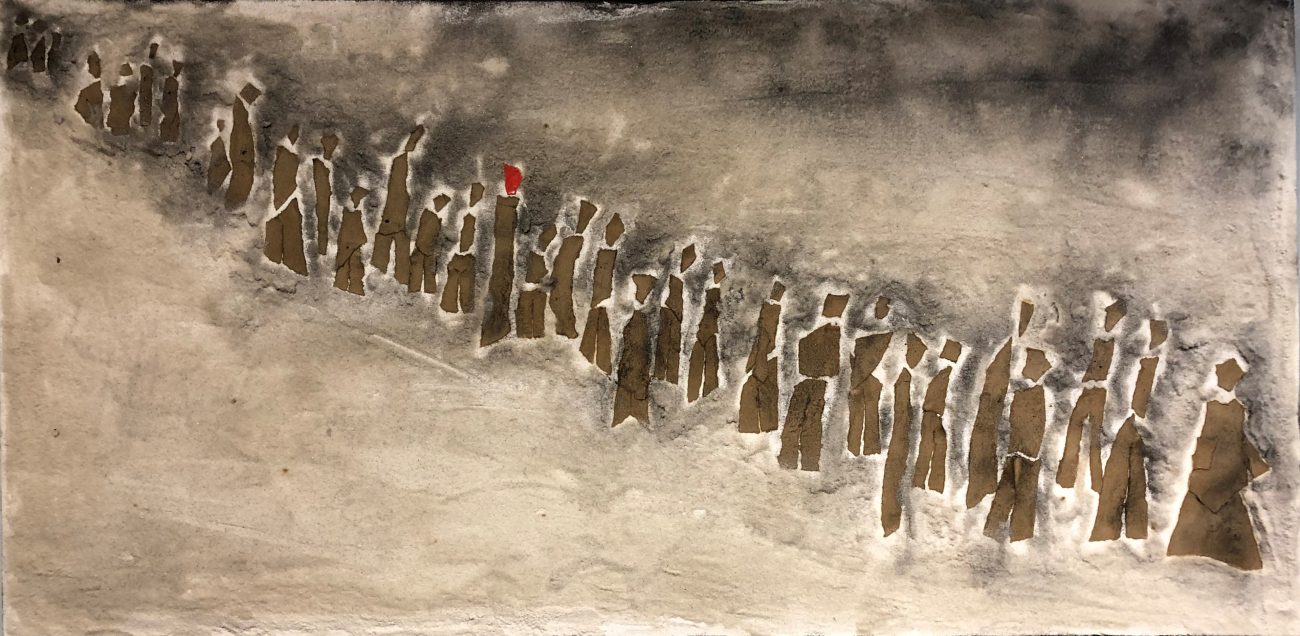As directors of the Human Rights Institute and Dodd Impact, we condemn the war of aggression against Ukraine as a blatant violation of international law and as a catastrophic attack on human rights. We have watched with sorrow the tragic loss of life, the unconscionable attacks on civilians, the wanton destruction of homes and hospitals, and the shocking 1.5 million people fleeing for their lives, including many who had fled violence in other parts of the world. We share the fear that in the coming weeks and months even worse suffering will be visited upon the Ukrainian people, as it has been on the Syrian, Yemeni, Rohingya, and far too many other people in recent years.
We have also been inspired by the remarkable courage and solidarity of the Ukrainian people in the face of Russia’s invasion of Ukraine. In many ways, this war comes as a reprisal for the Maidan Revolution’s defense of democracy and the rule of law in 2014. Then as now, however, the resolve of the Ukrainian people is a powerful testament to the spirit of those fighting for dignity.
Recent days have seen Russian forces escalate violence, both in the scale of their attacks and in the apparent indiscriminate targeting of civilians. The unprecedented 39-state joint referral to the International Criminal Court provides some hope that the rule of law may yet prevail, and we join with Benjamin Ferencz, the last surviving Nuremberg prosecutor, in insisting that those responsible, including Mr. Putin, “should be held accountable for aggression, crimes against humanity and plain murder.”
This aggression has brought death and destruction to Ukraine, but it has also brought repression and suffering to the Russian people. Ferencz, Thomas Dodd, and others at Nuremberg would have recognized the connection: aggression abroad undermines democracy at home in a vicious cycle. Authoritarians foment war, which leads to repression, which tightens their grip on power. In this, the fate of the Ukrainian and Russian peoples is linked.
In truth, all our fates are linked, and thus we stand with the Ukrainian people in their struggle for freedom and with those Russians risking their own freedom to oppose this war. We support President Maric’s recent statement and agree with our UConn Health colleague Dr. Leo Wolansky and the other members of the Ukrainian Medical Association of North America that “this barbarous act of war is a threat to all of us and an affront to global peace and democracy.” We stand with the students of UConn’s Ukrainian Student Association and Slavic Cultural Association in their call for solidarity with all those on campus affected by this war. And we echo the shock and horror of our Dodd Center for Human Rights neighbors at the Center for Judaic Studies and Contemporary Jewish Life at the damage done by a Russian attack to the Holocaust memorial at Babi Yar in Kyiv.
Speaking at the Dodd Center in 2015, Ben Ferencz lamented that war remained the gravest threat to “the most fundamental” of all human rights: “the right to life.” Then, as today, he refused to believe that change is impossible, and issued a challenge to the University of Connecticut to begin by fostering a change in “the way people think and feel” about the legitimacy of war. “The lessons of Nuremberg,” he said, “remain to be taught.”
At the Human Rights Institute and Dodd Impact, we are committed to supporting displaced and threatened scholars and students through our participation in the Scholars at Risk Network, the Open Society University Network, and the New University in Exile Consortium. We will also continue to teach the lessons of Nuremberg to foster the knowledge, skills, and values necessary to work together to construct a more just and peaceful world.
Kathryn Libal
Director, Human Rights Institute
Glenn Mitoma
Director, Dodd Human Rights Impact



